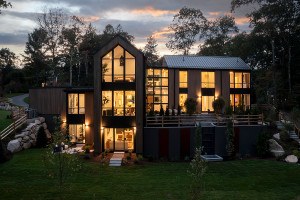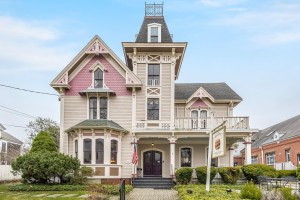How to Save on Your Energy Bill During a Winter Storm

Photos provided by This Old House and Shutterstock.
With super-storm Juno on the way, there are ways to save money and minimize weather related damage at home. To prepare, longtime New Englander and “This Old House” master carpenter Norm Abram advises homeowners to think of winterization priorities from the top down.
Here are the spaces to check and the tips to follow to make your home energy-efficient.
1. The roof: “Certainly the roof is the area of the house here in New England that gets the most damage and is abused by the winter weather. Check to see if there are dead branches on trees close to the house. If they go over in the wintertime, they can cause an awful a lot of damage. The thing that’s the most common problem on roofs is ice damming (ridges of solid ice that build up along the eaves). Dams can tear off gutters, loosen shingles, and cause water to back up and pour into your house. If you’ve had ice dams in the past, the most important thing we can do is try to keep the snow off. There are a lot of options now, like electrical melting systems and cables you can put in a gutter, but these should be installed by a professional.”
2. The windows and doors: “People who forget to put their storm windows down in wintertime and who don’t have good insulating glass are going to lose a lot of energy. Look at your doors to make sure that the weather stripping is nice and tight and at the sill level. If you can see daylight through the door from the inside, then your weather stripping probably needs to be replaced.”
3. The heating system: “Get heating systems inspected and serviced every single year—especially oil-burning furnaces. If it’s not serviced, it’s going to be very inefficient.”
4. The fireplace: “Closing a fireplace with glass doors—provided that it will get enough air to function correctly—is ideal. As soon as it cools down after burning, you need to close the damper right away to prevent heat loss. ”
5. The bathroom fans: “A lot of people leave bathroom fans on for way longer than they need to. For every minute they’re on, they’re taking heat outside the house.”
6. The humidity levels: “If humidity levels are too high, you can get damage from condensation on your windows. If you can bring humidity up to 30-35 percent, it’s good for your furniture and it’s also good for your health.”
And…don’t forget to get a free energy audit: “Most utility companies will do that free of charge,” says Norm. “They pressurize the house and walk around to all the windows, and they check around electrical outlets, and look at any penetrations into your walls to make sure you’re not losing energy.”

Photo provided by Shutterstock.


